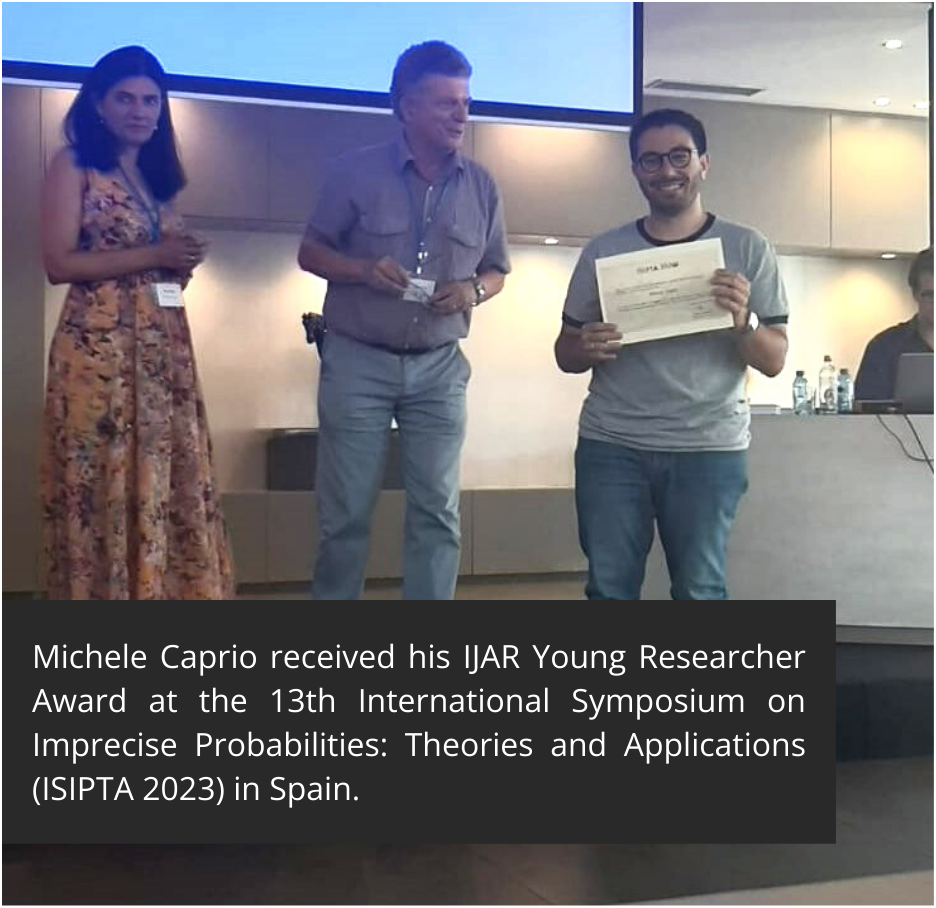News
Center Director, Insup Lee, has been selected as the recipient of the 2023 Distinguished Leadership Award by the IEEE Technical Committee on Cyber-Physical Systems (TCCPS). This award recognizes Dr. Lee's "exceptional contributions to establishing cyber-physical systems as a scientific discipline and continued growth of the community; and for pioneering research and leadership in medical cyber-physical systems."
IEEE TCCPS is the leading international technical organization for researchers and practitioners specializing in cyber-physical systems, which integrate cyber components such as sensor networks with embedded computing to monitor and control the physical environment. The organization’s Distinguished Leadership Award is given to just one honoree annually and is meant to recognize the individual on volunteering for IEEE and the CPS community, instead of professional achievements.
Congratulations!

We are honored to be featured by The Daily Pennsylvanian, Inc.
Check out this article where our Associate Director talks about how generative AI can be used in clinical practice.



Shuo Li, Sangdon Park, Insup Lee, and Osbert Bastani received Best Paper Award from the Neural Conversational AI Workshop at the Fortieth International Conference on Machine Learning (ICML 2023).
In their paper entitled “TRAC: Trustworthy Retrieval Augmented Chatbot”, they propose a novel strategy for retrieval augmented question answering by combining conformal prediction and global multi-hypothesis testing.
Congratulations on your well-deserved achievement!

Our postdoc, Michele Caprio, was named the IJAR Young Researcher of the Year, for his promising work and deep contributions to the field of imprecise probabilities. This Award is given by the International Journal of Approximate Reasoning (IJAR) to researchers, typically under 30, who demonstrate excellence in research at an early stage of their scientific career.
We congratulate Michele for his achievement!

Insup Lee, Warren D. Seider and Karen I. Winey are among the eight Penn scholars that have been named to the 2022 class of American Association for the Advancement of Science Fellows. They are among more than 500 researchers honored for their “scientifically and socially distinguished achievements.”
Congratulations, Insup!

PRECISE faculty, Linh Thi Xuan Phan, and a team of researchers have identified a critical security flaw in the networking approach used in aerospace and other safety-critical systems.

James Weimer co-founded Neuralert Technologies in 2019 as a spin-out from the University of Pennsylvania. Its mission is to transform the method of monitoring for stroke symptoms in hospitalized patients. Their "Stroke Detection Wristband" Named to TIME’s List of the Best Inventions of 2022.
Congratulations!

A very warm congratulations to Mayur, Saswat Anand, Mary Jean Harrold, and Hongseok Yang! Their paper titled "Automated Concolic Testing of Smartphone Apps" was selected for the ESEC/FSE 2022 Test of Time Award. This is a great recognition of the outstanding and impactful work he's doing!





Radoslav Ivanov, Taylor J. Carpenter, James Weimer, Rajeev Alur, George J. Pappas, and Insup Lee won ACM Transactions on Embedded Computing Systems (TECS) Best Paper Award at ESWeek 2022. Their paper addresses the problem of verifying the safety of autonomous systems with neural network (NN) controllers; and provides evaluations on four benchmarks.
Congratulations on your well-deserved achievement!
ACM SIGBED established the Distinguished Leadership Awards to recognize individuals who have exemplary and substantive leadership in leading and implementing activities over the communities relevant to SIGBED at regional, national, and/or international level.
PRECISE Director, Insup Lee, was named the recipient of the ACM SIGBED Inaugural Distinguished Leadership Award this year for his leadership in promoting cross-fertilization of ACM and IEEE communities in Cyber-Physical Systems, Embedded Systems, and Real-Time Systems.
Warmest congratulations to Insup!
